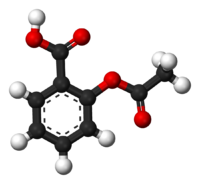
Photo from wikipedia
AIMS Methylation of non-histone proteins is emerging as a central regulatory mechanism in health and disease. The methyltransferase SETD7 has shown to methylate and alter the function of a variety… Click to show full abstract
AIMS Methylation of non-histone proteins is emerging as a central regulatory mechanism in health and disease. The methyltransferase SETD7 has shown to methylate and alter the function of a variety of proteins in vitro, however its function in the heart is poorly understood. The present study investigates the role of SETD7 in myocardial ischemic injury. METHODS AND RESULTS Experiments were performed in neonatal rat ventricular myocytes (NRVMs), SETD7 knockout mice (SETD7-/-) undergoing myocardial ischemia-reperfusion (I/R) injury, left ventricular (LV) myocardial samples from patients with ischemic cardiomyopathy (ICM) and peripheral blood mononuclear cells (PBMCs) from patients with ST-elevation MI (STEMI). We show that SETD7 is activated upon energy deprivation in cultured NRVMs and methylates the Hippo pathway effector YAP, leading to its cytosolic retention and impaired transcription of antioxidant genes manganese superoxide dismutase (MnSOD) and catalase (CAT). Such impairment of antioxidant defense was associated with mitochondrial reactive oxygen species (mtROS), organelle swelling and apoptosis. Selective pharmacological inhibition of SETD7 by (R)-PFI-2 restored YAP nuclear localization thus preventing mtROS, mitochondrial damage and apoptosis in NRVMs. In mice, genetic deletion of SETD7 attenuated myocardial I/R injury, mtROS and LV dysfunction by restoring YAP-dependent transcription of MnSOD and CAT. Moreover, in cardiomyocytes isolated from I/R mice and ICM patients (R)-PFI-2 prevented mtROS accumulation while improving Ca2+-activated tension. Finally, SETD7 was upregulated in PBMCs from STEMI patients and negatively correlated with MnSOD and CAT. CONCLUSIONS We show a methylation-dependent checkpoint regulating oxidative stress during myocardial ischemia. SETD7 inhibition may represent a valid therapeutic strategy in this setting.
Journal Title: Cardiovascular research
Year Published: 2022
Link to full text (if available)
Share on Social Media: Sign Up to like & get
recommendations!